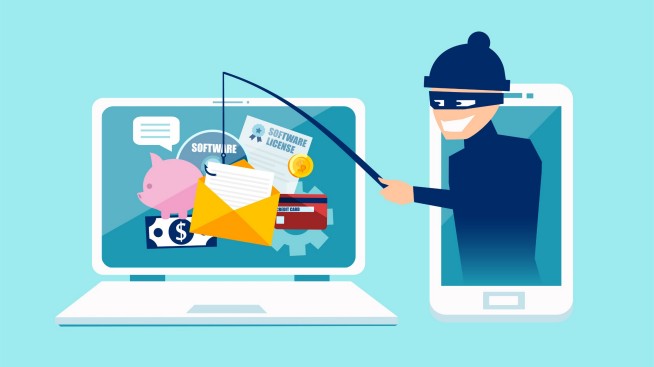What is employment identity theft and how to spot it

You may have heard of identity theft before, but may not be as familiar with how your identity can be specifically stolen for employment. Maybe one day, as you're going through your mail, you open up a letter and realize it's a W-2 from an employer you don't know. It has your name, Social Security number (SSN) and other personal information, but you don't recognize the activity listed, such as wages you didn't earn from a company you've never worked at before. How could this be?
You may have fallen victim to employment identity theft. This is a serious crime and can result in lingering consequences. If you're a victim to identity theft, you may have to deal with the hassles of correcting incorrect forms like government documents and confirm your identity. This violation can feel alarming—but it doesn't have to debilitating. We're here to help guide you through this unfortunate circumstance as well as provide actionable steps to protect you in the future.
In this article, you will learn:
- How employment identity theft occurs
- Steps to protect yourself against employment identity theft
- What to do if someone is using your identity for employment
How does employment identity theft occur?
Employment identity theft happens when an individual steals your SSN and other sensitive information to apply for a job. They may do this because they lack the credentials or they were declined the job at first attempt. There may be other reasons as well. If they're successful in fraudulently assuming your identity, it's possible that wages could be reported to the IRS—you could see them come through in your government and tax documents when you go to file.
This creates a headache for you and puts the perpetrator in a position where they can steal your identity and earn wages for a job they may not be qualified for. Let's look into other scenarios where employment identity theft can occur below. Another type of scenario could be when you accidentally or are tricked into applying for a fraudulent job and give your personal information to scammers.
Limited-term offers
According to the National Council on Identity Theft Protection, a company may reach out to an individual (such as over email) to work for a fixed amount of time (a limited term offer of employment). If this person then uses your information to apply for a job, they will be considered guilty of employment identity theft.
Lack of credentials
Perhaps an employer hires someone whose resume fits the role, but then later discovers that the details about their credentials were falsified. This can be a case of employment identity theft. That means someone has stolen your information via stealing credentials such as a diploma or a certification and adjusted it to attribute it to them.
Steps to protect yourself against employment identity theft
While you may not be able to 100% stop employment identity theft from happening, there are certainly ways you can protect yourself from having your information stolen. Take the following steps to better ensure your information is safeguarded.
Step 1—Secure your information
While it may sound obvious, protecting your information—both physical and digital—is extremely important. When you use strong passwords (and perhaps a reputable password manager to keep them safe), you're making it more difficult for a perpetrator to get access to your information. Another important action would be to thread any papers/documents that contain personal or financial data.
Step 2—Apply to legitimate jobs
Beware of potential scams out there, even when it comes to applying for jobs. Do your homework and read up on the employer, use third-party websites to see if they are legitimate, and don't give away your information until you're certain that the employer is safe. If possible, you may want to confirm the physical location of the employer to confirm that they are real.
Step 3—Use secure websites and Wi-Fi
Whether you're applying for a job or making online purchases with your credit card, do your best to stay on secured websites. These are sites that include "https://"in the URL, or ".org" or ".gov." Depending on the browser you use, there could be a lock icon indicating that your connection to that site is secure.
Step 4—Enroll in Chase Credit Journey®
When you enroll in this free online tool, you can opt in for identity monitoring services. This is a great way to get notifications if suspicious activity linked to your identity is detected so you can take immediate action.
Taking these proactive steps will help lower your risk of having your identity stolen, but what happens if someone manages to steal your information? What then? Let's look into possible solutions below.
What to do if someone is using your identity for employment
Let's go back to the beginning—imagine you're looking down at that W-2 tax form wondering what you could have done differently to protect your information from being stolen. While you can't change the past, you can try to mitigate the damage by acting quickly and transparently. Pause, take a deep breath and take the appropriate measures such as the ones below.
Correct the errors
You'll need to report the theft to government agencies such as the Internal Revenue Service, the Social Security Administration and the Federal Trade Commission. Working together with these organizations, you can correct the wrong information and clear your name from any illicit activities.
Report the theft
In addition to contacting the above agencies, you may very well have grounds to call the police and potentially the FBI, especially if stolen mail is involved—this raises the theft to a federal crime.
Contact financial institutions
Should your stolen information be used to apply for a loan or credit card, take over accounts and other financial activity, contact the 3 main credit bureaus—Experian™, Equifax® and TransUnion®—to correct the credit report. You should also want to contact your bank or issuer to alert them of the theft, as well as your current employer. Freeze any accounts to avoid further theft and keep an eye on your credit score for any changes.
Bottom line
Employment identity theft can happen to anyone—but you can take measures to help reduce the impact of this theft as well as proactive steps to help protect your information in the future. Be diligent about checking your credit score, tax information and other financial activity to look out for any suspicious signs of fraud.



